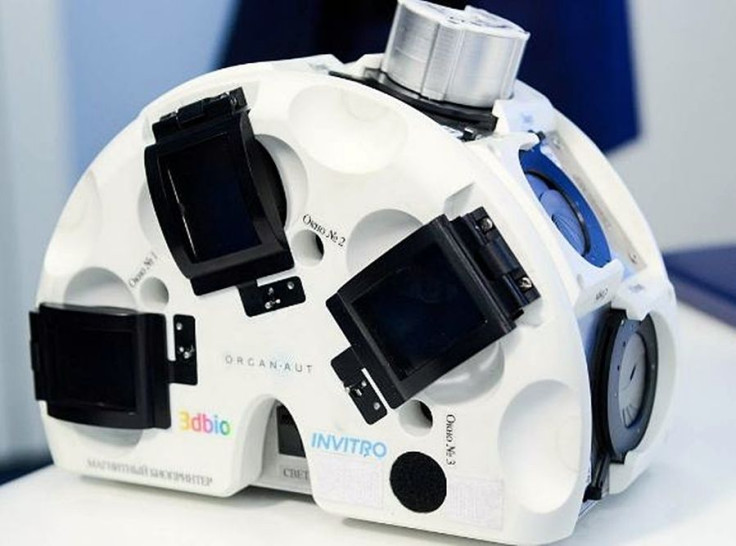Complex Living Tissue To Be 3D Printed Aboard ISS

Russian, American and Israeli scientists are working together to create the muscular tissue biomaterials that will be used to 3D print complex types of living tissue, including muscles and blood vessels, aboard the International Space Station (ISS).
This historic experiment is slated to take place in September and is part of a microgravity 3D bioprinting experiment. Leading the experiment is 3D Bioprinting Solutions, a Russian bio-technical research laboratory.
“In September, we will send muscular tissue cells (to the ISS),” Yusef Khesuani, a managing partner at 3D Bioprinting Solutions, said.
“We engage in this project jointly with two labs from U.S. and one from Israel. The Israeli colleagues will share their cattle biomaterials with us. Our U.S. colleagues will provide us with fish biomaterials, extracted from several types of fish.”
This company's "Organ-Avt 3D bioprinter" will be used in experiments to print living tissue in space. This machine was delivered to the ISS in December 2018.
This printer is an upgrade that will allow it to 3D print more complex types of tissue. This experiment will eventually contribute to making deep space exploration possible, according to scientists.
The muscles, blood vessels and other complex tissues to be 3D printed aboard the ISS print will stay on the space station where they will be examined over time to help reveal the long-term effects of space travel on the human body.
Scientists reveal it's easier to print living organs in space than on Earth because organs are more likely to collapse under their own weight because of the effects of gravity. The original Organ-Avt bioprinter (a copy of which is aboard the ISS) is being used to grow living tissues and eventually organs. The zero-gravity conditions enable 3D-printed organs and tissues to mature at faster rates.
The printer has been used to successfully produce a mouse’s thyroid since its installation at the ISS. It's also being used to study how living organisms are affected by long flights in outer space.

Russian scientists also plan to upgrade the Organ-Avt bioprinter in 2020, after which experiments to print “tubular structures -- renal duct, urethra, blood vessels” are scheduled.
The Russian 3D bioprinter will complement the American-made 3D BioFabrication Facility (BFF) bioprinter, which will be delivered to the ISS by the SpaceX Cargo Dragon spacecraft on mission CRS-18 set for this July.
This printer was developed by nScrypt, a Florida-based 3D printing system manufacturer, and Techshot, a spaceflight equipment developer. BFF will be “the first American developed, owned and operated 3D bioprinter in space.”
Published by Medicaldaily.com



























